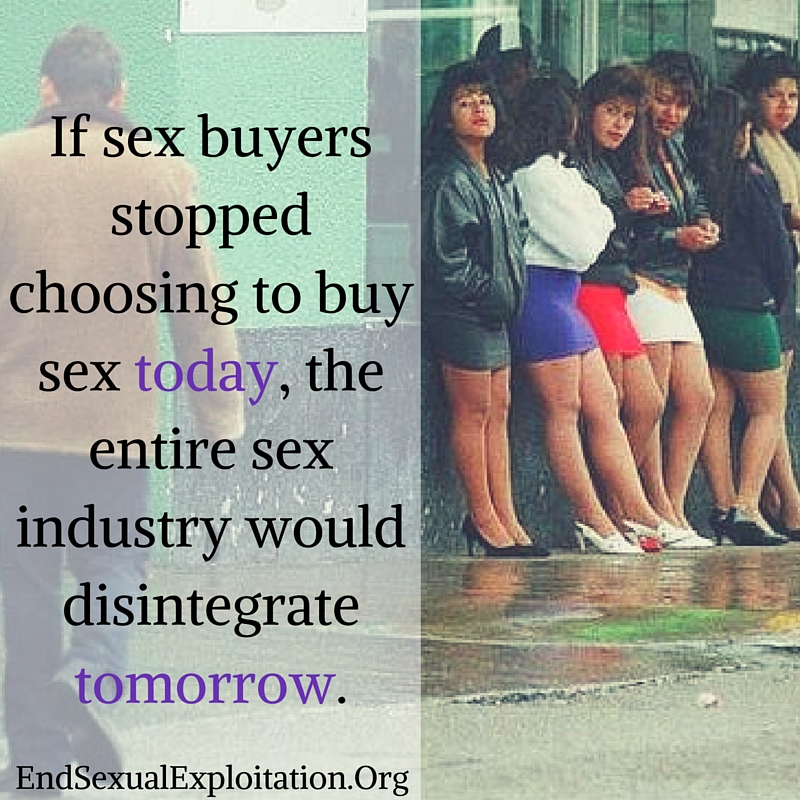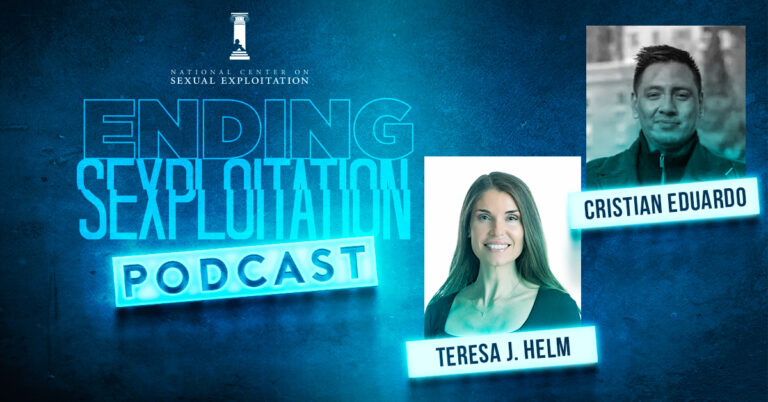Argument: “There is no problem with prostitution as long as it’s freely chosen.”
Response: “The debate about choice in prostitution is always focused on those with the least power and control in the whole equation: the prostituting person. It’s time to discuss the choices of those with the real power—sex buyers, pimps, corporate interests, and governments—and hold them accountable for their choices to promote and participate in sexploitation.”
If for nothing else, America is known for the bonanza of choices it presents to those living within its borders, and the freedom it extends to those individuals to pursue them. From the trivial, like what kind of milk (i.e. skim, 1%, 2%, whole, dairy, almond, soy, and a wide assortment of blends) and coffee we drink (ice mocha latte with a shot of espresso, anyone?), to the serious, like the occupations we pursue and those we elect—and everything in between—America affords its residents a cornucopia of choices. Indeed, choice and freedom are viewed by many as part of the American birthright.
In this context, supreme value is placed on the ability to choose, but not on what is chosen. As long as a perception of the freedom to choose exists, most people are happy to let others pursue whatever course they will. However, this “it’s your choice” approach to life, is not without its downsides. Just ask any recently divorced person who was traded in for someone younger and hotter how they feel about their ex-spouse’s choice to move on. Or consider the lives being lost because of the new wingsuiting craze that has motivated people to jump off mountains to experience “flying” but who tragically plummeted to their deaths. Clearly, then, not all choices are created equal.
This is especially true of prostitution. But, ask anyone involved in advocacy efforts or providing social services on behalf of prostituted persons, and they will tell you about the all-too-familiar, pro-prostitution, trump card otherwise known as “the choice argument.” It usually goes down like this: whenever a debate about prostitution arises, pro-prostitution advocates play their “choice card” by raising an argument which asserts that as long as prostitution is chosen, it no longer constitutes exploitation. Any harms that result are just the cost of poor decision making and the full responsibility of the person making the choice. The intended result is to shut down any arguments about the harms, the violence, the inequality, and dehumanization that are all part and parcel of prostitution. After all, to be anti-choice is to be anti-freedom, a proponent of oppression, and an unreasonable puritan, right? Without doubt it’s been a powerful tactic, but let’s examine the claim more carefully.
According to this view, no matter how injurious, dangerous, or pernicious the choice to prostitute may be, we must simply sit back and accept prostitution as a fact of life—as long as it is chosen. But as author and women’s advocate Rebecca Whisnant explains, “That something is chosen or consensual is perfectly consistent with its being seriously oppressive, abusive, and harmful—to oneself and/or to a broader group of which one is a member (e.g. women).” We wholeheartedly agree.
There are lots of choices one can make: to jaywalk, eat foods loaded with trans fat, drive above the speed limit, not wear a helmet while riding a motorbike, smoke, handle a loaded gun, or go wingsuiting in the Alps and many more. But as a civilized society we recognize that choices such as those listed above are potentially harmful to the individuals who engage in them, as well as others around them who don’t. In light of these dangers, society attempts to make rules, restrictions, and barriers on such activities, and in some cases even bans them. Why should it be any different for an activity as imbued with as much risk as prostitution?
To the extent that prostitution is ever truly a choice (for most of the people in it, it most decidedly is not), it’s a choice fraught with danger, and not just run-of-the-mill office place dangers (like slipping on wet floors), but physical and sexual violence that includes things like stabbings, rape, gang-rape, degrading sexual acts, choking/strangulation, beatings with fists or hard objects, kidnap, stalking, threat with a firearm, and torture—to mention a few. (For more on the physical and sexual violence native to prostitution, see our booklet Prostitution: “The Zone” of Raw Male Physical and Sexual Violence.)
Given this degree of potential harm, prostitution hardly seems like a choice that any caring society would sanction. But that’s exactly what happens when governments legalize or decriminalize prostitution—they choose to allow the vulnerable, the desperate, and the reckless to become the prey of the greedy, powerful, selfish, and lascivious. They choose to ensure that a pool of persons are always on supply as public, sexual property, disregarding the many lives that are offered up and the cost to individual bodies, minds, and spirits.
Ironically, the debate about choice in prostitution is always focused on  those with the least power and control in the whole equation: the prostituting person. Those with the real power—sex buyers, pimps, corporate interests, and governments—are rarely, if ever, held accountable for their choices. Indeed, if sex buyers stopped choosing to buy sex today, the entire sex industry would disintegrate tomorrow.
those with the least power and control in the whole equation: the prostituting person. Those with the real power—sex buyers, pimps, corporate interests, and governments—are rarely, if ever, held accountable for their choices. Indeed, if sex buyers stopped choosing to buy sex today, the entire sex industry would disintegrate tomorrow.
Of course, no one is holding their breath waiting for that to happen. However, those who care about people in the sex trade can choose not to build a super highway to sexploitation by fully decriminalizing or legalizing prostitution, but to shrink the opportunities for pimps and sex buyers to operate by creating and enforcing tough penalties on their activities, and fostering pathways out of prostitution for those already in it. That’s the only choice that fosters dignity, wholeness, life and true freedom.


